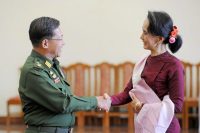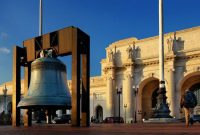La clave para la renormalización de la relación entre Estados Unidos y Cuba
La Cumbre de las Américas que se desarrolla en Los Ángeles trae a primer plano los muchos cambios que se han producido desde la última vez que el presidente estadounidense Joe Biden había estado en la Casa Blanca. Después de enero de 2017 Venezuela se convirtió en un estado fallido, y las migraciones desde Centroamérica han sido causa de polarización política en los Estados Unidos. Brasil eligió como presidente a una versión tropical de Donald Trump, y México a un populista de izquierda.
Pero hay algo que no cambió: Cuba sigue siendo un estado de partido único, y una espina en el costado de la política exterior y de promoción de la democracia en la región de los Estados Unidos.… Seguir leyendo »







